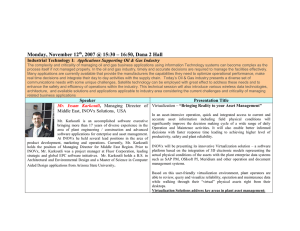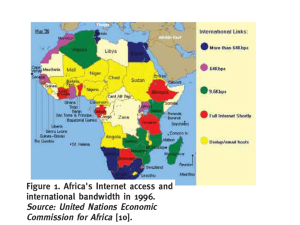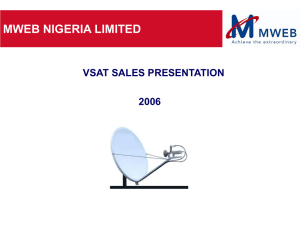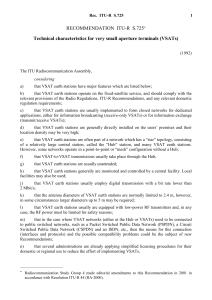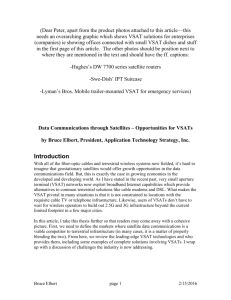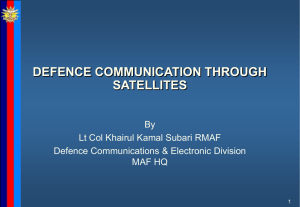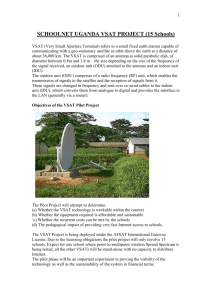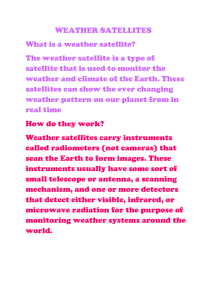case study
advertisement
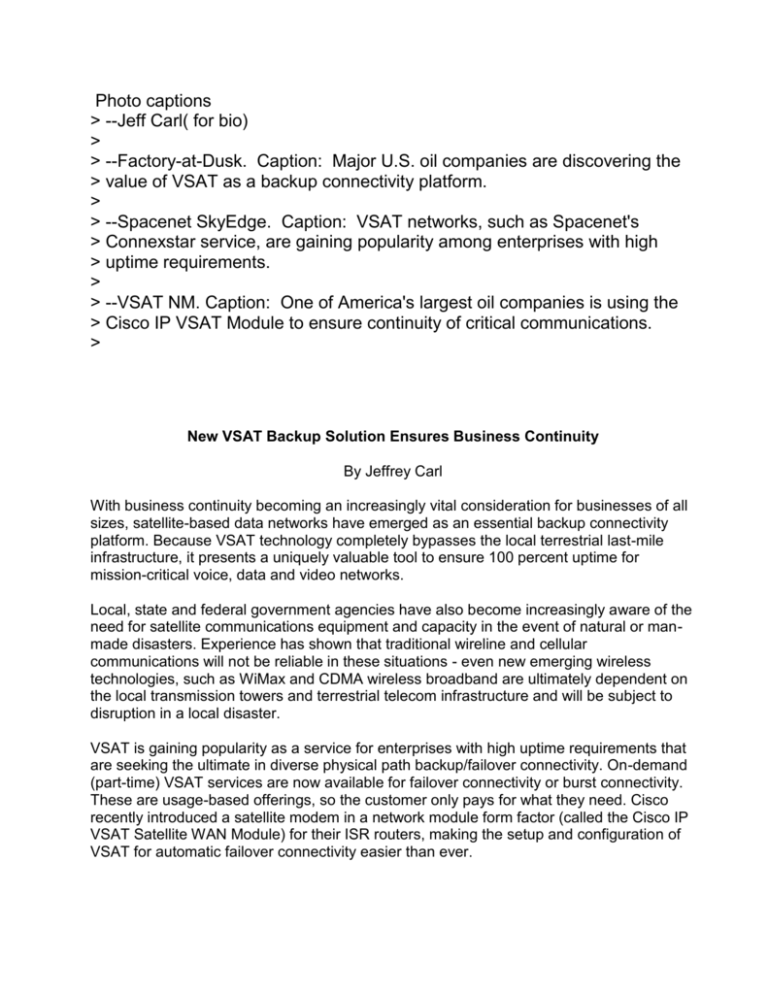
Photo captions > --Jeff Carl( for bio) > > --Factory-at-Dusk. Caption: Major U.S. oil companies are discovering the > value of VSAT as a backup connectivity platform. > > --Spacenet SkyEdge. Caption: VSAT networks, such as Spacenet's > Connexstar service, are gaining popularity among enterprises with high > uptime requirements. > > --VSAT NM. Caption: One of America's largest oil companies is using the > Cisco IP VSAT Module to ensure continuity of critical communications. > New VSAT Backup Solution Ensures Business Continuity By Jeffrey Carl With business continuity becoming an increasingly vital consideration for businesses of all sizes, satellite-based data networks have emerged as an essential backup connectivity platform. Because VSAT technology completely bypasses the local terrestrial last-mile infrastructure, it presents a uniquely valuable tool to ensure 100 percent uptime for mission-critical voice, data and video networks. Local, state and federal government agencies have also become increasingly aware of the need for satellite communications equipment and capacity in the event of natural or manmade disasters. Experience has shown that traditional wireline and cellular communications will not be reliable in these situations - even new emerging wireless technologies, such as WiMax and CDMA wireless broadband are ultimately dependent on the local transmission towers and terrestrial telecom infrastructure and will be subject to disruption in a local disaster. VSAT is gaining popularity as a service for enterprises with high uptime requirements that are seeking the ultimate in diverse physical path backup/failover connectivity. On-demand (part-time) VSAT services are now available for failover connectivity or burst connectivity. These are usage-based offerings, so the customer only pays for what they need. Cisco recently introduced a satellite modem in a network module form factor (called the Cisco IP VSAT Satellite WAN Module) for their ISR routers, making the setup and configuration of VSAT for automatic failover connectivity easier than ever. Another rapidly growing market for satellite services is transportable connectivity to government, homeland security and first-responder organizations. By putting an autopointing VSAT antenna on the roof of a SUV or trailer, agencies can use the satellite modem as the backhaul for a “go-anywhere” mobile Internet access, VoIP or other communications command post that is deployable in five minutes or less. Case Study: Major Oil Company Deploys VSAT for Business Continuity The Gulf Coast hurricanes of 2005 drove home the importance of business continuity planning. For major U.S. oil companies in the region, the devastation of hurricanes Katrina and Rita highlighted the need to plan not just for transitory outages or network problems, but also for long-term communications failures. Those disasters also demonstrated that telco, cable and terrestrial cellular infrastructures are likely to be severely degraded in the aftermath of a major storm, creating a need for a truly independent and redundant means of communications. Let’s look at how one of the nation’s largest energy companies coped with these disasters and implemented a communications plan to ensure complete continuity of critical communications in the future. In the aftermath of hurricane Katrina, our case study company lost voice and data communications with some of its 16 Gulf of Mexico oil refineries. Wireline circuits (frame relay/T1, DSL and cable) were all out of service. Cellular communications were saturated and often unavailable. Voice and critical data communications of any kind were offline, and the refineries were completely isolated. The company quickly learned that, without voice and e-mail links, refinery metrics could not be evaluated. Senior management was unable to make critical decisions, and employee and operational safety became a growing concern. To deploy an emergency connectivity solution, the company turned to Spacenet. Within 24 hours, Spacenet delivered satellite terminals to restore critical communications services between the headquarters and the affected refineries – avoiding costly and timeconsuming refinery shutdowns. Once terrestrial communications were restored, the oil company re-designed its disasterrecovery strategy to reduce its dependence on terrestrial communications links, and integrate a satellite back-up solution into its ongoing communications and IT infrastructure. In early 2006, Spacenet deployed the Cisco IP VSAT Satellite WAN Module. This enables network managers to configure their networks to automatically “fail over” to a satellite broadband connection for voice and data if their primary links fail. The Cisco VSAT WAN backup solution enables the oil company to minimize service disruptions during disasters and terrestrial WAN outages by switching high-value or mission-critical communications to the VSAT network. This enables the oil company to maintain data communications between its Texas headquarters and each of its refineries in the Gulf area. The on-demand satellite connection is configured on the router just like any other WAN interface, and routes are selected in the order specified by the network administrator. The entire switching process between terrestrial primary and satellite backup links requires less than two minutes. With up to 1 Mbps uplink and 3 Mbps downlink capacity available on the VSAT network, the oil company can retain the most business-critical data and voice communications services, facilitating continuity and recovery. With improving bandwidth capabilities, on-demand service options, greater costeffectiveness and unique options such as the new Cisco solution, VSAT is positioned as an ideal choice for WAN backup and disaster recovery. We expect VSAT to maintain its critical, behind-the-scenes role to ensure constant access to communications. ### (Insert Jeff Carl photo here) Jeffrey Carl is Director of Marketing for Spacenet Inc., one of the nation’s largest and most experienced providers of satellite communications for enterprises and government. He can be reached at 703-848-1068 or jeff.carl@spacenet.com.
